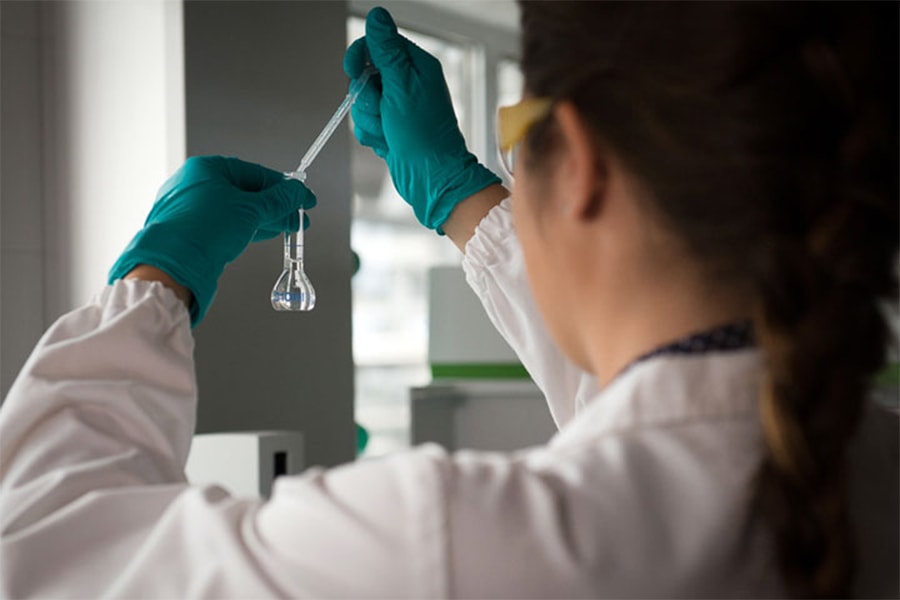
Dow Helps Students Gain Practical Perspective on Research
The Dow Chemical Company is renewing its University Partnership Initiative with Carnegie Mellon University to support graduate students studying chemical engineering.
In 2011, Dow launched the initiative to advance scientific research and develop the world's next generation of scientists and leaders in process development, energy, transportation and consumer applications. Dow invested in 11 chemical engineering research departments across the country, including Carnegie Mellon's. Nine graduate students in CMU's Department of Chemical Engineering received funding through the initiative from 2011 to 2016.
"We have been asked to help Dow understand how to use numerical and textual data to help them improve the reliability of their processes and uncover meaningful insights and patterns related to their global operations," said Nick Sahinidis, professor of chemical engineering and director of the Center for Advanced Process Decision-making.
The Dow initiative marks a valuable step in promoting direct interaction between academia and industry. Sahindis said the long-term commitment allows CMU to invest in riskier approaches, which are likelier to provide greater impact.
While some projects in the Dow-CMU program focus on the modeling and optimization of chemical reactors, others consider the entire supply chain and require an ability to model uncertainties in the marketplace.
Braulio Brunaud and Sreekanth Rajagopalan are two chemical engineering Ph.D. students working in supply chain optimization under the Dow initiative. Each student works with a Dow engineer on their projects, ensuring a two-way exchange of ideas as well as opportunities for the students to develop industry contacts.
Brunaud's research focuses on mathematical programming and computing within server operations. He said his research was theoretical at the start of his doctoral studies.
"That was one of my main apprehensions of entering a Ph.D. program — learning a very specific, tiny thing for a number of years," said Brunaud, who is in his third year. "But by having the opportunity of being here through the initiative, we've done something different; we're doing some real, high-impact research."
Rajagopalan, who will graduate within the next year, has accepted a job offer from Dow. His project on maintenance turnaround planning has been implemented by the company. The goal was to understand plant operations enough to know when they could be taken offline for maintenance but still satisfy product demand.
"Say you have a large chemical site with lots of plants that are interconnected," Rajagopalan said. "If you take down one plant for maintenance at a certain time of the year, then all the other plants also need to go down unless you build up an inventory."
Nicholas Austin, who graduated with his Ph.D. in chemical engineering, was also part of the Dow initiative. His research looked at optimizing molecular design to create the best molecule for any given purpose.
"Especially as research engineers, it's our imperative to avoid things that don't turn up any immediate practical use," Austin said. "It's important to have a firm, practical focus."